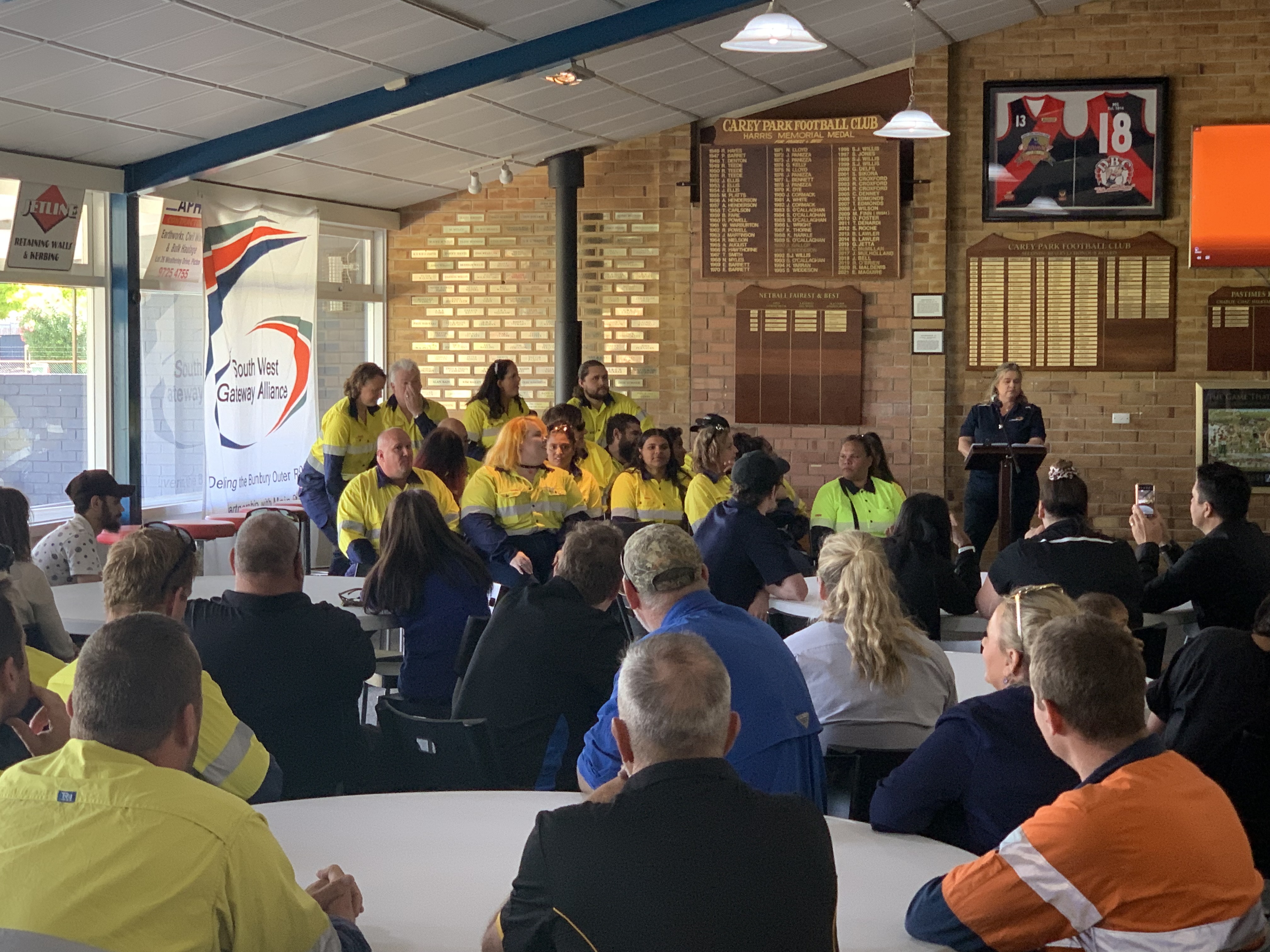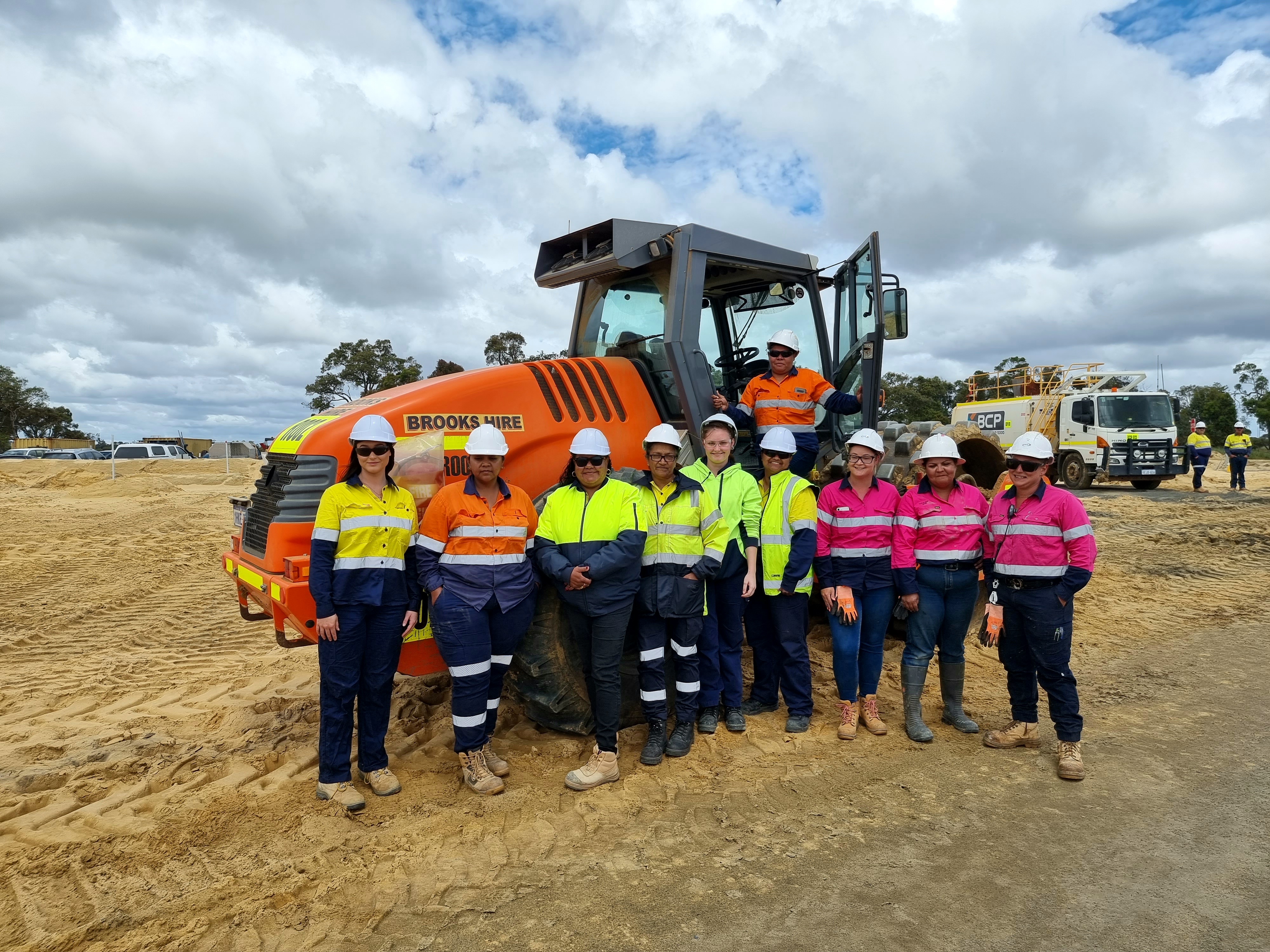Looking Back at Yaka Dandjoo
The Yaka Dandjoo ready-for-work program’s final cohort of trainees graduated in March 2024. Let’s look back at the program and see how it positively contributed to the Bunbury Outer Ring Road’s (BORR) employment, training and sustainability targets.
Published: 03 October 2024, Updated: 03 October 2024
The program was designed to support unemployed or never-employed individuals from marginalised backgrounds in gaining employment within the construction industry. Beyond gaining work skills, the program supports its graduates on an individual basis to ensure they are ready for long-term employment prospects that will continue to change their lives, and the lives of their families, for generations to come.
The program has six phases, starting with onboarding and life skills education, and then all participants complete the Infrastructure Ready Skill Set course in partnership with South West Regional TAFE. Following this, participants undertake two weeks of work experience on a BORR construction site before graduating in front of their friends and families. All graduates receive continued training and support, with many going on to complete traineeships and apprenticeships to help achieve sustainable employment.
To achieve this goal, multiple groups needed to work together. This included government and local industry, who provided significant support in meeting the end employment targets of the program. It also included the leadership team on the BORR project who were integral in setting, sharing and reiterating the vision and values of the program itself.
And, of course, the Yaka Dandjoo delivery team who were instrumental in ensuring operational seamlessness and providing personal support for trainees.
Graduation ceremony
There was a lot that went into the success of the program, including carefully designed and implemented training and programs—on and offsite. The inclusive and safe workplace considered everything from cultural awareness to employment background and even specific career goals. This was all to ensure that everyone participating in the program was given the space to grow with empathy and understanding.

Graduation ceremony

Female graduates of the program
So how did the three-year long program fare in achieving its goals?
- 191 total graduates across 13 cohorts
- 122 graduates in total have been employed on BORR overall.
- Over 125 graduates entered the industry after finishing the program.
- Around 40 entered into traineeships and apprenticeships.
This is a significant achievement for cohorts of long-term unemployed, never employed and/or disadvantaged trainees.
But it is not just about the numbers. Many people involved in the program, as both trainees, trainers and otherwise, spoke of how personally impactful participation was for them. The presence of Yaka Dandjoo participants onsite enriched the work environment on BORR and helped the entire construction team appreciate just how meaningfully the graduates’ lives have been changed.
Here are some quotes from the huge amount of feedback we have received from our graduates over the three years.
“What [the Yaka Dandjoo team] were able to do was bring a whole bunch of people from many different walks of life, and through the program, walk out as one with their heads held high.”
“It is never too late to change. If an opportunity presents itself take it. You never know where it might take you.”
“When I started the Yaka Dandjoo program, I had no idea I would end up where I am today. I have my first job working on the Bunbury Outer Ring Road, and I wouldn’t change it for the world.”
If you’d like more information about Yaka Dandjoo or are interested in engaging with any of our graduates, please contact us at people@swgateway.com.au.